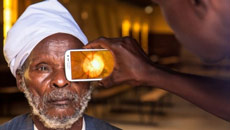In a major breakthrough, scientists are now growing specialised organs such as vagina in the lab and successfully implanting them in patients.
Four teenage girls received such an implant and the organs are working “normally” now, a study has said.
All the patients in the study underwent surgery five to eight years ago because they were born with a rare genetic condition in which the vagina and uterus are underdeveloped or absent.
The girls were between 13 and 18 years old at the time of their surgeries.
Scientists grew each vagina from the patient's own cells, and then implanted it in her body.
So far in the follow-up, the treatment has been successful and the patients who are now sexually active have reported normal function.
“Although this is a small pilot study, the results show that vaginal organs can be constructed in the lab and used successfully in people,” said study author Anthony Atala, director of the institute for regenerative medicine at Wake Forest Baptist Medical Centre in the US.
The girls in the study had a congenital deformation called Mayer-Rokitansky-Küster-Hauser (MRKH) syndrome, which affects between one in 4,000 female infants, the researchers said.
Growing vaginal tissue from a person's own cells could potentially be a new treatment option for patients with vaginal cancer or injuries who require reconstructive surgeries, the researchers added.
To build the personalised vaginas, the researchers took a small piece of vulvar tissue - less than half the size of a postage stamp - from each patient and then allowed the cells to multiply in lab dishes.
Once the organs were ready, doctors surgically created a cavity in the patients' bodies, and stitched one side of the vaginal organ to the opening of the cavity and the other side to the uterus.
The findings were published in the journal Lancet.





